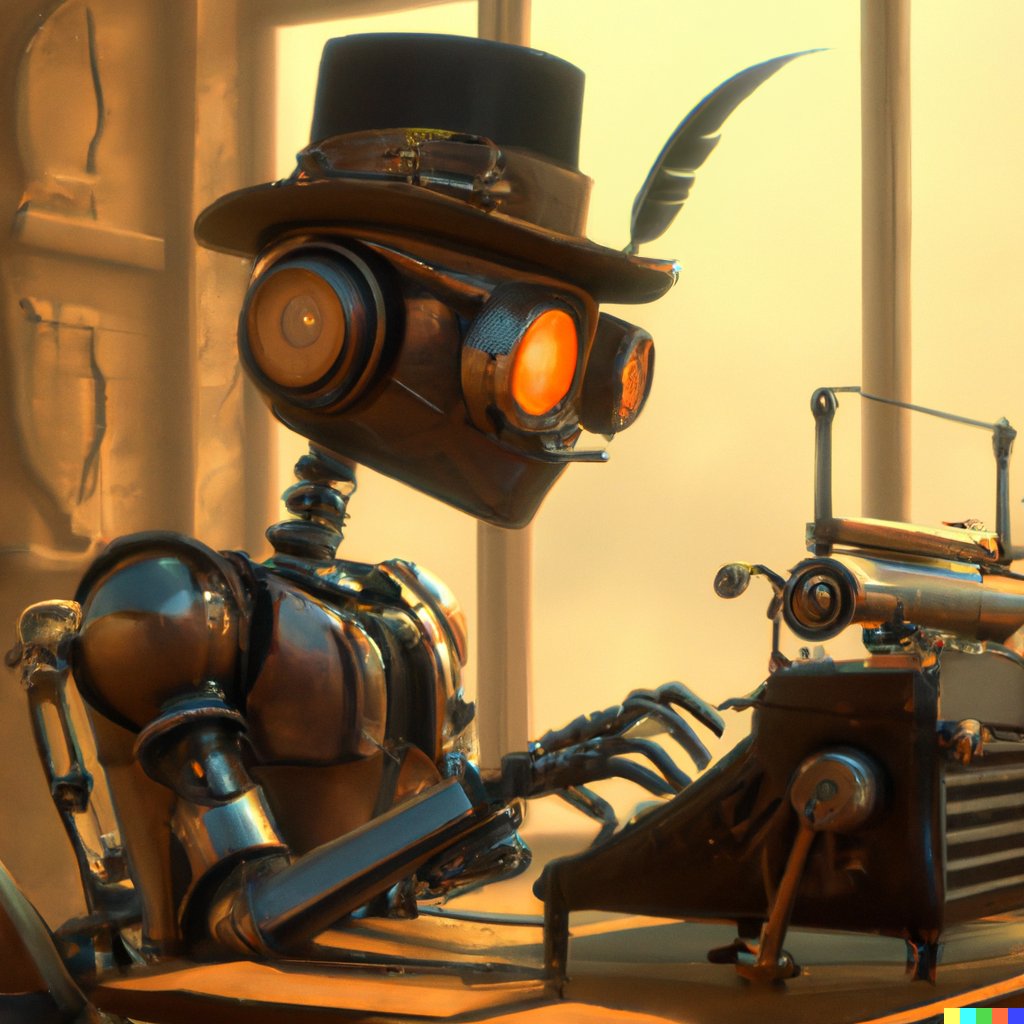It's no secret that artificial intelligence (AI) is radically changing the landscape of content creation. Some say we are on the cusp of a content creation revolution. Thanks to advances in AI, businesses and individuals now have access to powerful tools that can help them create unique and insightful content at a fraction of the cost and time investment of traditional methods. We'll explore some of the key ways AI is transforming content creation and the potential implications for businesses and consumers. As AI continues to evolve, there are key considerations that content creators must keep in mind in order to stay ahead of the curve.
How AI is changing content creation
There are a number of ways AI is changing the content creation landscape. Perhaps the most obvious way is in terms of cost and efficiency. Thanks to natural language processing (NLP) algorithms, businesses can now automatically generate blog posts, articles, social media posts, and even video scripts with little to no human involvement. This not only saves businesses money on content creation costs, but it also allows them to generate a larger volume of content in a shorter period of time.

Another way AI is changing content creation is in terms of quality. Thanks to advances in machine learning, AI-powered content generation tools are getting better at understanding context and generating more nuanced and insightful content as a result. For instance, OpenAI's GPT-3 algorithm is now able to generate realistic sounding poems and even convincing legal documents. This means that businesses no longer have to rely on human experts to generate high-quality content; they can now let AI do it for them.
AI is also changing how we index and search for content. Thanks to predictive analytics, businesses can now use AI to automatically surface the most relevant and interesting content for their audience. This not only saves users time, but it also helps businesses ensure that their audience always has access to the latest and greatest information.
What are the implications of AI-generated content?
There are a number of potential implications of the shift towards AI-generated content. Perhaps the most obvious one is that traditional content creators—such as writers, journalist, and photographers—could see their jobs replaced by machines. While this may sound like a dystopian nightmare to some, it's important to remember that this transition will likely take place over many years and that there will still be a need for humans to create higher-level conceptual pieces or manage complex projects.
Another potential implication of AI-generated content is that we could see an increase in low-quality or "clickbait" style content as businesses seek to capitalize on the fact that user attention span online is notoriously short. While this may be bad for users, it's important to remember that thanks to predictive analytics, there will also be an increasing number of tools available to help surface only the most relevant and interesting content for each individual user.
While there are still many unanswered questions about how artificial intelligence will change content creation, it's clear that the impact will be significant. As AI continues to evolve, content creators must keep key considerations in mind in order to stay ahead of the curve.By doing so, they'll be able to take advantage of all that machine learning has to offer while avoiding any potential pitfalls along the way.
1. How unique will the AI-generated content be?
In a world where AI is generating more and more content, it's important to consider just how unique that content will actually be. After all, if two pieces of content are indistinguishable from one another, then there's little incentive for readers to consume both. In order to stand out from the crowd, then, it's important to make sure that AI-generated content is truly original.
2. How insightful will the AI-generated content be?
As we all know, not all information is created equal. When it comes to consuming content, readers are primarily interested in pieces that offer new insights or perspectives on familiar topics. That's why, when evaluating AI-generated content, it's important to consider just how insightful the piece actually is. Is it merely regurgitating facts that can easily be found elsewhere? Or does it offer a fresh perspective that will leave readers wanting more?
3. How will indexing and search engines treat AI-generated content?
In addition to human readers, it's also important to consider how search engines will treat AI-generated content. After all, if a piece of content isn't properly indexed or ranked highly in search results, then it might as well not exist at all. Fortunately, most major search engines have announced that they're taking steps to ensure that AI-generated content will be properly indexed and ranked. However, it's still early days and things could always change further down the line.
4. What second-order effects will arise from AI-generated content?
Last but not least, it's important to consider the potential second-order effects of large-scale AI-generated content production. For example, what happens when copyright infringement becomes rampant? What legal protections will exist for authors of AI-generated works? And how will society react when confronted with seemingly endless streams of automated content? These are all questions that remain unanswered for now but will need to be addressed eventually. As more businesses begin using AI to generate marketing material or social media posts, there could be an increase in fraudulent or misleading information as unscrupulous actors seek to take advantage of gullible users. However, it's also possible that AI-generated content could help reduce fake news by providing users with easy access to accurate information from multiple reliable sources.
AI is changing the landscape of content creation in a number of ways—from reducing costs and increasing efficiency to improving quality and accuracy. While there are some potential downsides—such as job loss for traditional content creators—the overall impact is likely to be positive as businesses and consumers alike benefit from having access to better quality information more quickly and easily than ever before.
Surprise! This was was written by AI
With a total cumulative setup time of less than 2 minutes, this entire piece was written by AI. About 1,000 words and a unique image in less than the time than it takes to make a cup of coffee. It would have taken less time however I tweaked some of the inputs to obtain a higher quality of content. The image was generated using Open AI's DALL-E with the prompt: "a steampunk robot at a desk writing on a typewriter with a feather in the hat, digital art"
Using AI to generate content used to take a long longer - requiring an understanding of software tools, loading code libraries, and training models. The rise of SaaS platforms with simplified user interfaces is bringing AI content creation to the masses.
Disclaimer: Opinions are my own and not the views of my employer. Actually, the AI's opinions do not even reflect mine.
